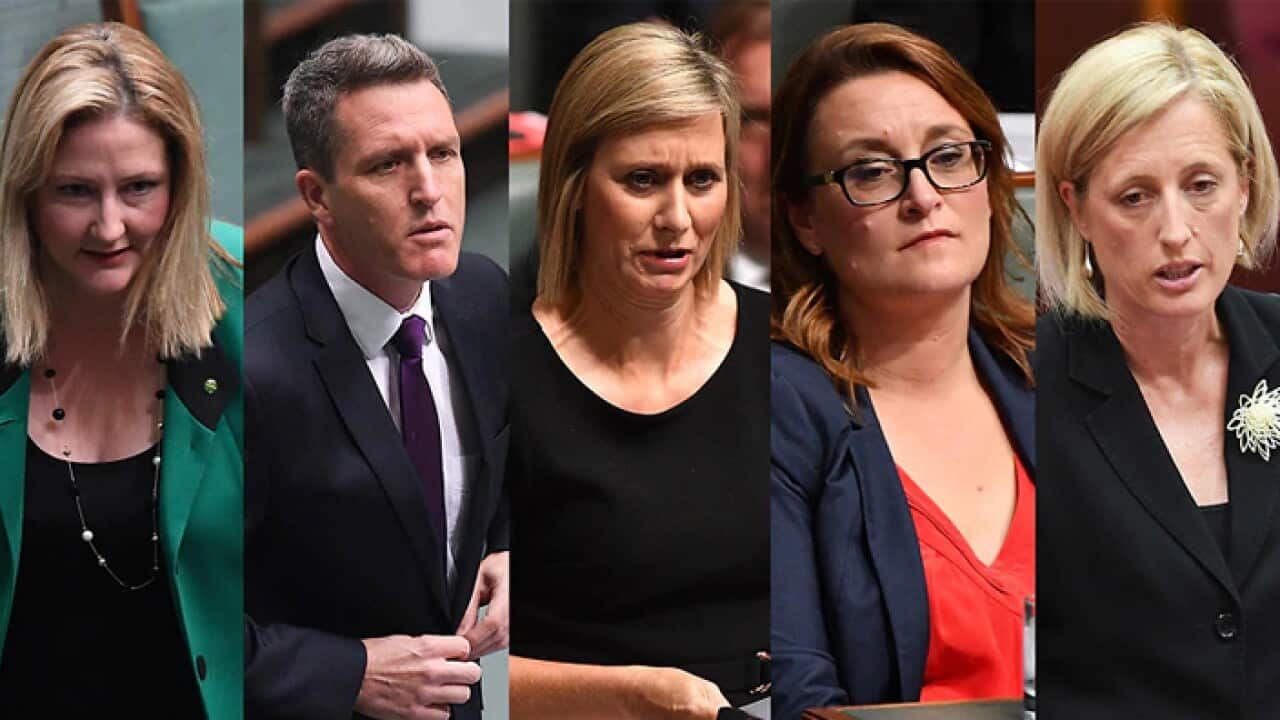The Perth barrister who sparked the dual citizenship crisis engulfing federal parliament has issued a warning to the 15 politicians who’ve fallen foul of rules banning dual nationals from holding office.
John Cameron told SBS News the politicians could be liable for prosecution if they signed candidacy forms with full knowledge of their status.
It’s been almost a year since Mr Cameron first brought the issue of dual citizenship to a head when he inquired into former Greens senator Scott Ludlam’s New Zealand nationality, leading to his resignation.
Since then, more than a dozen other politicians have been embroiled in the saga and either been forced to step down or reclaim their seats in a by-election.
The latest include four Labor MPs who stepped down after the High Court on Wednesday ruled against former Labor senator Katy Gallagher’s eligibility.
Mr Cameron has a history of inquiring into politicians’ eligibility. He has previously brought a query to the High Court seeking to have former prime ministers Julia Gillard and Tony Abbott produce proof of their citizenship renunciation, which was later rejected.
The barrister says his inquiries on the matter have been because of his love of the law.
“The public is sick of politicians who believe they are above the law and I think I’ve tapped into something that’s of concern to the public,” he told SBS News.

John Cameron Source: SBS News
Mr Cameron says there could be further trouble for the politicians who’ve been caught up in the citizenship saga if knew they were dual citizens and yet signed Australian Electoral Commission documents on their nomination.
“It is a crime under our criminal code to give false information to a public officer and false information has been given in the nomination form,” Mr Cameron, who does pro-bono work for asylum seekers in Perth, said.
“There are warnings in the nomination forms about how important it is to be sure you are not infringing section 44 of the Constitution.
“The penalty for giving false information to the Australian Electoral Commission is - if it’s done knowingly -12 months' imprisonment. If any of them was to be found to have done so knowingly, they would be liable to a 12 months' imprisonment.”
Mr Cameron added that would also render them incapable of recontesting their seats.
“A number of the 15 have said they would stand again. If they are convicted of an offence in respect of their nomination forms, even they are not sentenced to 12 months' imprisonment, they are still ineligible to sit in parliament," he said.
Mr Cameron also warned there could be problems for former politicians who may have been dual citizens in office.
He says for every one of those who’ve been identified as dual citizens in the current parliament, there would be at least three or four former politicians potentially in strife for claiming taxpayer funds after leaving office.
“Fifteen have been found to be dual citizens. I would imagine for every one of those there are three or four former MPs drawing pensions to which they are not entitled,” Mr Cameron said.

Three Labor MPs and one Independent have resigned over their dual citizenship status, just hours after the High Court ruled Labor's Katy Gallagher was invalid. Source: AAP
Calls for a referendum
A parliamentary inquiry into section 44 of the Constitution, which bans dual citizens from sitting in federal parliament, is expected to report next week.
Prime Minister Malcolm Turnbull ordered the inquiry at the height of the crisis last year.
It’s believed it could recommend a referendum to resolve the issue once and for all, after the chair of the committee spearheading the inquiry, Liberal senator Linda Reynolds, suggested such an option could be needed.
Mr Turnbull has hosed down that as a possibility, saying politicians should just do their proper paperwork instead.
“If you want to run for parliament, you've got to make sure that you are a citizen only of Australia full stop, it's pretty straightforward," he said.
“It’s time for people to make sure that they're not dual citizens before they nominate for parliament.”
Constitutional law expert, Professor Anne Twomey, said it’s difficult for a referendum to pass. But the other option – allowing the Australian Electoral Commission to vet candidates - would also be time-consuming and impractical.
“The period before an election once you know who’s nominated is really very short. The number of candidates is very large. How could the electoral commission sensibly and accurately assess every one of those candidates in that short period of time?" she told SBS News.
At the heart of the issue is also whether such a rule banning dual citizens from holding office is still relevant in a multicultural society.

Constitutional law expert, Professor Anne Twomey Source: SBS News
Professor Twomey says the most concerning aspect of the recent High Court decision was whether it locked out people for whom it’s much more difficult to renounce their citizenship, purely because of the rules of the other country.
“There is a level of unfairness here because people who come from some countries will find it very easy to renounce - this is not going to be a problem for them,” she said.
“People who come from other countries who have dual citizenship are going to have problems in terms of renouncing. It may take four or five years and in that period of time your opportunity to be a member of parliament may have passed.
“That does start leading to a situation where you have different classes of people - those who can easily become a member of parliament – and those for whom it’s much harder.
“If we get to the point where we can see that actually this is having effectively a discriminatory type of effect upon who can participate in our electoral system …. then I think that might give a better reason for reform and might actually help a referendum succeed.”


